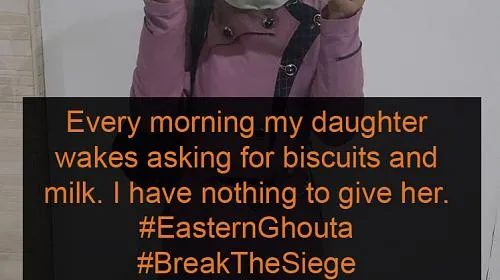Thousands of Syrians are still being killed, wounded, displaced, and besieged every day as the war rages on and help is not reaching people in need, the Syria INGO Regional Forum said today. The member organizations warned against a narrative that violence is reducing in the wake of recent political agreements.
Since September, the deadliest month of 2017 in Syria, not only has violence not decreased, it has in fact spiked in places like Raqqa, Deir Ezzor, western and rural Aleppo. Clashes are also ongoing in the ‘de-escalation zones’ in Idlib, rural Hama and Eastern Ghouta where nearly 400,000 people remain under siege and blocked from aid. According to Syrian health workers based in Eastern Ghouta, food is increasingly expensive, access to drinking water is threatened and cases of malnutrition are on the rise. The United Nations has called the situation a ‘humanitarian emergency.’
In other parts of the country, heavy air strikes, shelling, and the use of explosive weapons in populated areas are proving deadly. Thousands of people, many of them children and women have lost their lives or have been badly injured. Health workers witness many casualties of improvised explosive devices (IED), including in areas of ‘de- escalation’ and where fighting has stopped.
The fighting continues to forcibly displace thousands of people every day with many of them fleeing to areas where aid agencies cannot reach them because of the ongoing fighting and the threat posed by armed actors. Since January 2017, an average of 6,550 people were displaced on a daily basis in Syria. Other Syrians have escaped the horrors of besiegement and hunger, only to find themselves caught in the crossfire once again. For these civilians – displaced over and over again – the war in Syria is far from over.
Hospitals, and other civilian infrastructure – which are protected under international law – are being attacked and destroyed. Schools have also been attacked, denying children an education. In Raqqa and the northeastern city of Deir-Ezzor wells and water systems have been damaged threatening people’s access to water.
In areas where the fighting has now ended – such as Raqqa – the remnants of war have contaminated buildings and roads, making it very difficult for humanitarians to safely access communities in need. Many parts of the country are now littered with unstable unexploded weapons, and booby traps – some so sophisticated that clearance experts do not yet have the capacity to neutralize them. It will take years of clearance operations before the threat from these weapons is lifted, and this threatens to limit returns, and to prevent people from rebuilding their homes and communities.
The current escalation in violence is compounding the enormous humanitarian needs of communities throughout Syria and reducing humanitarian access in many parts of the country. More than 3 million people are surviving in ‘hard to reach’ or besieged areas and cut off from aid either due to insecurity or obstruction by parties to the conflict. Humanitarian agencies struggle to ensure people in need have access to food, water, basic medical care and essential goods. In many cases, humanitarian workers are taking enormous personal risks to deliver life-saving aid.
We call on all warring parties to immediately cease all attacks on civilians and civilian infrastructure and refrain from using explosive weapons in populated areas. We also ask for all sieges to be lifted, and for the immediate and unimpeded access to people in need, across Syria, while humanitarian workers are protected and supported in the delivery of aid. Civilians must be able to move freely, and seek safety and assistance without being threatened of reprisal.

